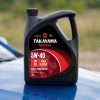There are triumphant scenes as lorries leave a vaccine plant in Pune, India, loaded with boxes that will prevent thousands of deaths. Adar Poonawalla, the owner and chief executive of the Serum Institute of India, poses on the tailgate of a truck, making the most of his company’s “proud and historic” moment as the potential saviour of the nation – and even a large chunk of the world.
Poonawalla’s factory, the largest vaccine manufacturing complex in the world, is the best hope for immunisation for people in Africa and some low-income countries elsewhere – which could save them from the ravages of the coronavirus pandemic. The Serum Institute has been contracted to supply the UN-backed Covax initiative, which subsidises low-income countries, with 200m doses of Covid-19 vaccines with an option on 900m more.
For a heart-stopping moment last week, it seemed that vaccine nationalism within India might slam the door. On 4 January, just after the Serum Institute got approval from the Indian regulator for the vaccine – made under licence from AstraZeneca – Poonawalla was reported as saying there was a condition attached, which was that only India could have the vaccine for the time being.
Map of factories where the Oxford vaccine will be made
The following day, he clarified the “confusion in the public domain” on Twitter, saying “exports of vaccines are permitted to all countries”.
But the lorries are headed across India for now and the episode underlines the tension as every country with cash wades into the fight for vaccines, putting manufacturers under unprecedented pressure to deliver for them.
As affluent Europe and North America scramble to deploy the Covid vaccines they have pre-bought – amid accusations that immunisation programmes are too slow and the wrong people are getting the jabs – there has been not a single shot in the arm in many countries elsewhere.
Three vaccines have been approved in the west. Pfizer/BioNTech and Moderna are expensive and need long-term storage at -70C. Pfizer offered to sell the vaccine to South Africa at a 50% discounted price of $10 a shot, but was told the cost was still prohibitive.
But Oxford/AstraZeneca’s vaccine is stable at fridge temperatures of 2-8C and AstraZeneca has promised not to make a profit for the duration of the pandemic. It aims to provide 3bn doses this year, made in factories around the world under licence. It is the mainstay of the Covax initiative, which has now bought a total of 1.97bn doses of four different vaccines to distribute when they become available. The AstraZeneca vaccine accounts for most of it.
The Serum Institute has promised to make 100m doses for Covax of the AstraZeneca vaccine and a further 100m of the Novavax jab – if and when that is approved. Covax has an option on a further 900m doses of one or the other of those vaccines.
Deliveries could start as early as February, said a spokesperson for Gavi, the vaccine alliance which is a partner in Covax.
“We anticipate being able to provide each participating economy with the first tranche – enough to protect approximately 3% of the population – in the first half of 2021. This process could begin as early as February, pending favourable regulatory outcomes and the readiness of health systems and national regulatory systems in individual participating economies.
“In terms of which vaccines will be rolled out to which countries, as well as timeframes, we hope to be able to share more on that very soon.”
Seven countries have now given emergency authorisation to the Oxford/AstraZeneca vaccine or the Serum Institute version: the UK, India, Argentina, the Dominican Republic, El Salvador, Mexico and Morocco. The Carlos Slim Foundation in Mexico is licensed by AstraZeneca to supply 150m doses to Latin America. These countries could take delivery right away.
But other countries without a regulatory body will be waiting for the World Health Organization to give the green light, which is said to need data from the Serum Institute. In what sounded like a nudge, the director general, Tedros Adhanom Ghebreyesus, said on 11 January it looked forward “to Serum Institute of India submitting full datasets for rapid assessment so WHO can determine whether we can recommend their AstraZeneca vaccine for international use”.























































Свежие комментарии